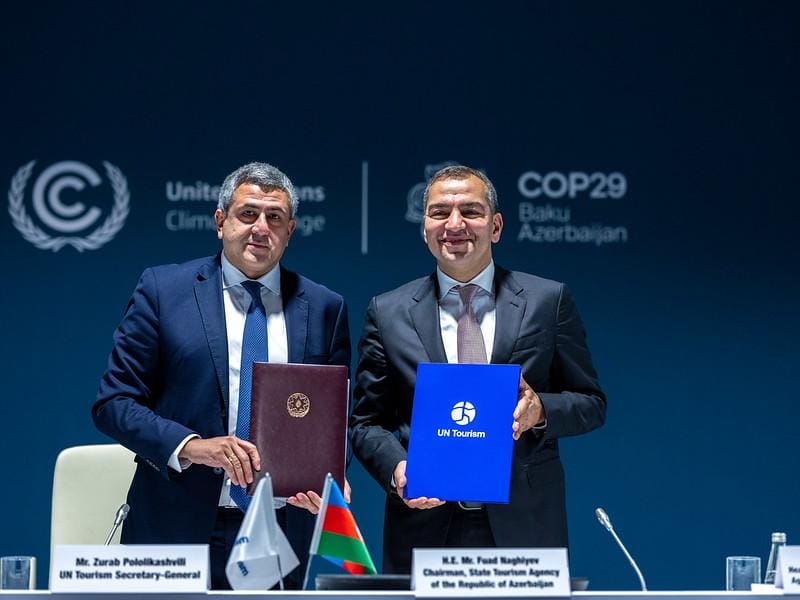52 Countries Sign COP29 Declaration for Enhanced Climate Action in Tourism
COP29 features the first-ever Tourism Day

Tourism took centre stage at COP29 as over 50 countries endorsed a landmark declaration for enhanced climate action.
The event in Baku featured a historic first: a dedicated Tourism Day, where public and private sector leaders recognised the significant impact of climate change on the tourism sector and its potential to drive sustainable solutions. Over 700 stakeholders participated in the Tourism Day events.
Chaired by Mr. Fuad Naghiyev, Chairman of the State Tourism Agency of the Republic of Azerbaijan, the First Ministerial Meeting focused on aligning tourism policies with national climate goals.
UN Tourism Secretary-General, Zurab Pololikashvili, and UNEP Executive Director, Inger Andersen, emphasised the need for a science-based approach, citing research from the University of Queensland indicating that tourism accounts for 8.8% of global emissions.
Key Takeaways:
- Enhanced Climate Action: 52 countries signed the COP29 Declaration for Enhanced Climate Action in Tourism.
- Measuring and Decarbonising: The UN Statistical Framework for Measuring the Sustainability of Tourism was presented, and discussions focused on carbon measurement at various levels.
- Adaptation and Regeneration: The importance of scalable financing, innovative instruments, and collaborative approaches was highlighted.
- Glasgow Declaration: The initiative continues to gain momentum, with 58 new signatories joining and a focus on implementation.
- Global Coordination: UN Tourism and the State Tourism Agency of Azerbaijan signed a Letter of Intent to establish a global coordination mechanism.
New Signatories of the Glasgow Declaration Initiative
The UN Tourism reports that the Glasgow Declaration Initiative has advanced with over 370 action plans developed by its 900 signatories.
Key takeaways from the Glasgow Declaration Implementation Report 2024, released at COP29, include: 74% of signatories with climate plans are measuring progress; 92% include decarbonisation actions; 73% include actions related to biodiversity protection; 41% include climate adaptation actions; 29% refer to climate justice; 82% report working in partnership with others; and 44% refer to finance actions, with this pathway remaining a challenge.



